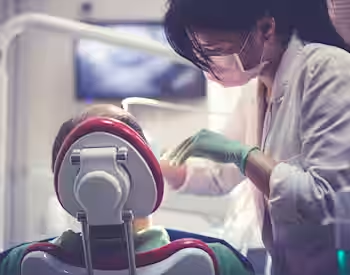Table of contents
News
Open wide!
Many aspects of what we might consider 'normal' in our day-to-day lives changed with the onset of lockdown conditions due to the coronavirus pandemic. This has included the temporary closure of dental practices, opticians, audiology services, chiropody, chiropractors, osteopaths and other medical or health services, including services relating to mental health. What was considered safe and not safe across each area of the sector, was confused.

Throughout the lockdown, Fieldfisher Partner and Co-Head of its Regulatory team, Sarah Ellson, has led on some significant work with regulators and healthcare clients to advise on existing regulations and on what is deemed acceptable safe working practices in the current circumstances.
Sarah and team advised a leading hearing aid retailer on the extent to which they, as hearing aid practitioners, could operate during lockdown. The firm was concerned that UK professional bodies were taking a much tougher line that other EU countries and needed clarity on what its legal position was.
The crisis has also driven companies providing essential supplies and services in the health sector to coordinate their efforts with competitors to maintain continuity of supply. Guidance from the Competition and Market Authority issued early in the crisis set out the circumstances in which such coordination would comply with competition law. Fieldfisher's Competition team supported an industry body and its members in coordinating the supply of intravenous feeding equipment for COVID-19 patients in intensive care, in a manner that is compatible with competition law.
Fieldfisher also advised on the operation of the optical sector as we went into lockdown about co-ordinating optician services that would remain open.
The firm's most high profile work has been in advising new clients in the private dental sector. The Care Quality Commission was threatening regulatory enforcement action against any dental practice that re-opened contrary to the Chief Dental Officers guidance, that was only give advice, analgesia or antibiotics and to refer to NHS urgent treatment centres in the most extreme cases.
One client had commented; "It's like 19th century dentistry out there."
Under Schedule 2 Part 3(37) of The Health Protection (Coronavirus, Restrictions) (England) Regulations 2020 ("the Coronavirus Regulations") dental services* are listed as businesses that are permitted to remain open and a person may leave their home for the purpose of accessing dental services. Section 6(2) of the Regulations provides that:
'a reasonable excuse includes the need-- … (c) to seek medical assistance, including to access any of the services referred to in paragraph 37 or 38 of Schedule 2'
*also opticians, audiology services, chiropody, chiropractors, osteopaths and other medical or health services, including services relating to mental health.
Therefore, at all times it has been lawful for "dental services" to be open and for patients to visit them, although those offering any NHS services were and remain subject to restrictions imposed by NHS England and the Chief Dental Officer.
On behalf of private practice clients, Fieldfisher challenged the CQC and got it to acknowledge it had no basis to take action if dentists could open safely and comply with the Fundamental Standards and the requirements for PPE. Private dentists have been able to plan for re-opening since the CQC clarified its position on 19 May.
The Government has announced that all dentists may re-open from 8th June and NHS England's Chief Dental Officer, Sara Hurley has changed her advice.
Private dentists have not been subject to guidance from the CDO, although she says in her letter of 28th May; "A number of dentists have been asking if the advice to NHS dental providers also applies to the private dental sector. We recommend a single approach to the safe and effective resumption of dental care."
There is still a long way to go in this crisis; and the Regulatory team continues to work closely with healthcare professionals and regulators to ensure a full range of healthcare practitioners are able safely open to treat patients and ensure that supplies and services are maintained.
Listen to article
0:00
/
0:00

Open wide!
0:00
0:00